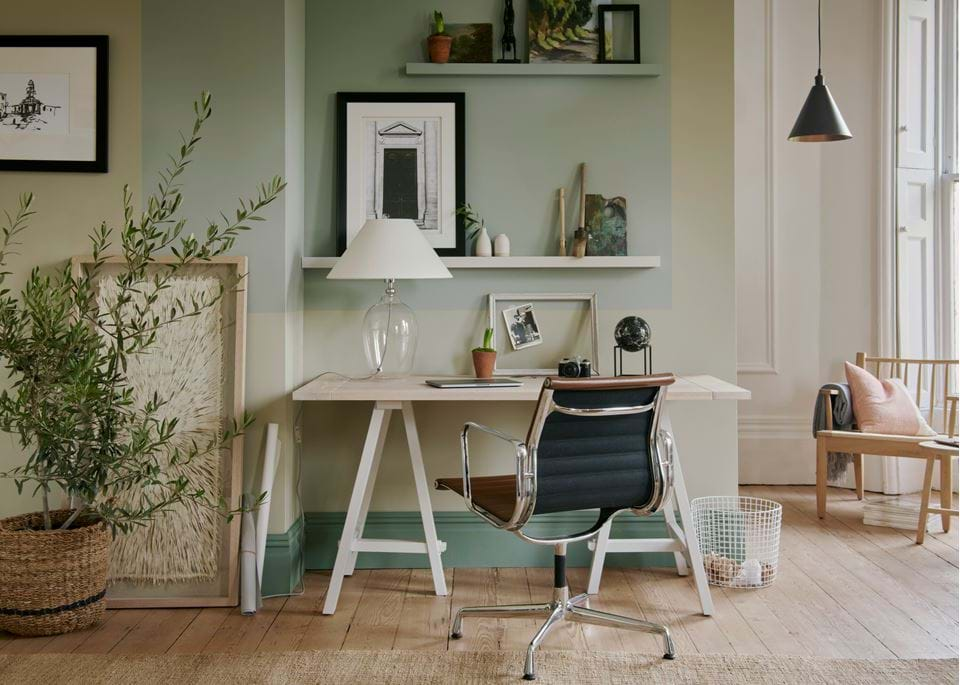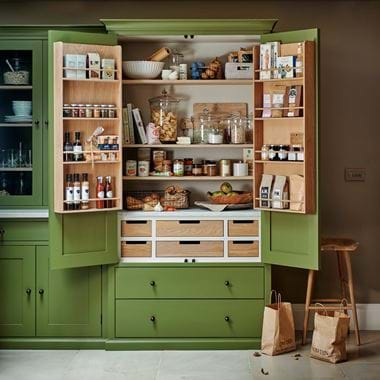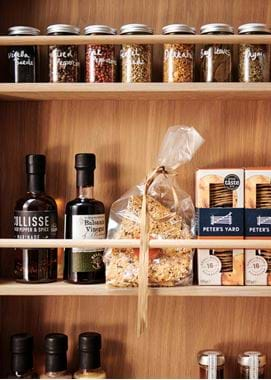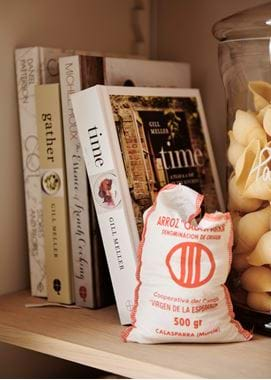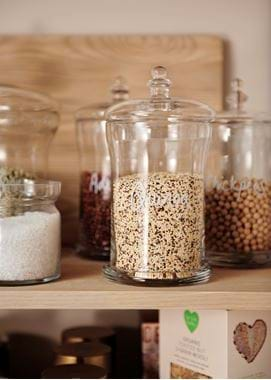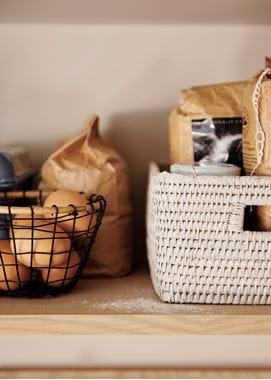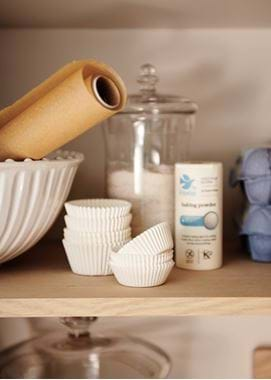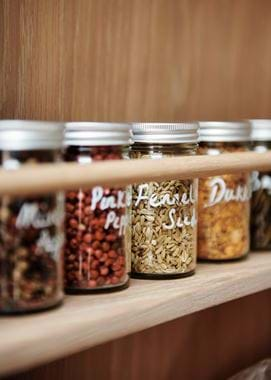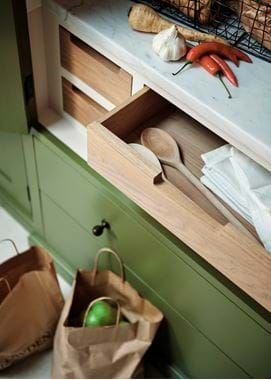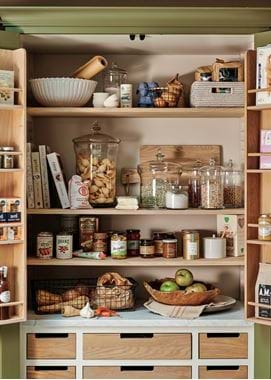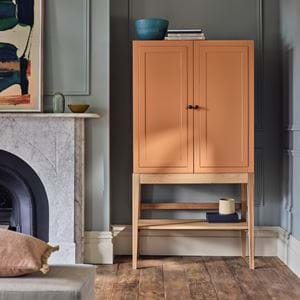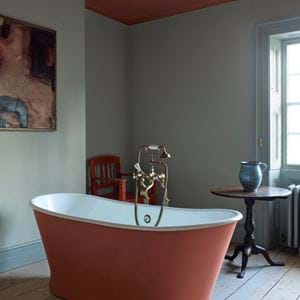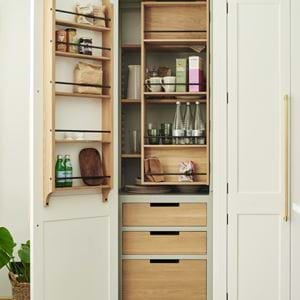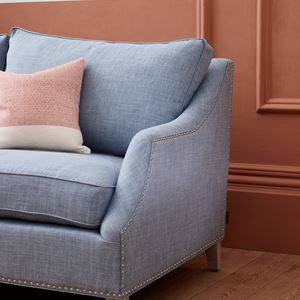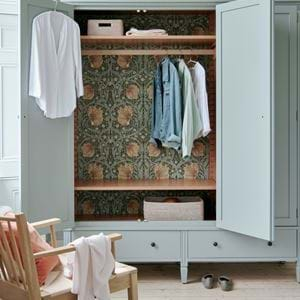How to organise a kitchen larder
How to organise a kitchen larder
A tidy larder can give us a tiny sense of order and calm. And according to professional organiser and author, Vicky Silverthorn, founder of You Need A Vicky, it helps with future planning too. No more repeat purchases of dried soya beans when two packs are rapidly reaching their sell-by date at the back of a cupboard. But how best to arrange a larder so that it looks good and works practically? Here, Vicky and Neptune stylist Meaghan suggest some simple, sensible solutions.
Clear out
Before you can organise your cupboards, you need to do a big clear out. Remove any out of date foods (yes, we all have a few herb jars from 2015) and also pull out any foods that you know you’ll realistically not use. Rather like sorting out your wardrobe, be honest with yourself and question whether you will use the tinned fruit you bought for a recipe you now can’t find. ‘Instead, deliver them swiftly to a food bank where others will be very pleased to have them,’ advises Vicky.
Categorise
Now you have the foodstuffs and equipment that you want to store, organise them into categories – dried pulses, jars, boxes of cereals, snacks and so on. Within the categories, organise the foods by sell-by dates with the longest at the back of the shelf, rather as a supermarket would do. ‘If you organise the shelves like a shop front, you’ll soon realise what you’re over-buying on,’ says Vicky.
Store for taste
Cool, dark larder cupboards can be useful for storing items that would otherwise need to go into a fridge. Meaghan suggests using a bottom self with a marble base, such as the larder in our Suffolk kitchen collection, for storing vegetables like onions, garlic and potatoes in wire baskets, as the marble will naturally keep the produce cool. ‘Tomatoes for example, will taste infinitely better straight from the larder as opposed to the fridge,’ she explains, ‘as will avocados, apples and oranges.’
Packaging decisions
Decant what you want into glass jars or Tupperware, but don’t get carried away with swapping packaging in order to create a photogenic Insta-moment. ‘You don’t need tins of baked beans in wicker baskets,’ laughs Vicky. ‘This is about making life as logical as possible.’ Meaghan adds, ‘Glass jars work well for things that you want to keep air-tight (like coffees, teas and dried goods), whereas wire baskets work better for fruit or veg, where you don’t restrict the airflow.’ Disappointing as it might be for lovers of Kilner jars, square containers are more space efficient on a shelf. Vicky recommends Oxo Pop Cubes as they come in different sizes and depths and can be stacked. For fiddly items such as bags of crisps, Vicky recommends baskets. ‘Empty a multi-pack of crisps into a basket so they are easy to access,’ she advises.
Eye level
You need to be able to see foods to know what you are running low on and also to inspire you to use them. Vicky’s golden rule is to always have healthy foods at eye level and keep naughty treats out of direct sight. ‘It’s a simple strategy but it’s very effective when you’re trying to eat well,’ she says. ‘Even in the fridge, I’ll store berries in glass containers at eye level and move the cheese elsewhere.’
Name it
The easiest way to label the foods that you’re decanting is to cut out the product label and sell-by information, slip it into the top of the jar and stick it on the underside of the lid. Alternatively, Meaghan uses a white chalk pen on the jar: ‘It works a treat – quick to do and easy to wipe off again.’ For the seriously committed, Vicky suggests a Dymo Labelmaker. ‘Ultimately, larders are working cupboards,’ says Vicky. ‘Organising them will make them look good but they need to make practical sense as well.’
Each of our kitchen collections has its own larder design (or two). You can explore these in any of our stores. For a freestanding alternative, try our customisable Chawton collection.
